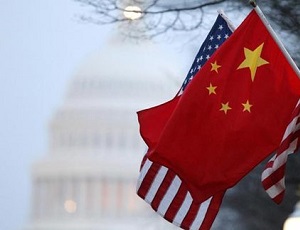 SHANGHAI—Duties imposed by the Ministry of Commerce on the import of U.S. cars and SUVs into China were in violation of international trade regulations, a WTO panel has found. The ruling, while lacking immediate effect (China voluntarily ended the duties in December of last year), is expected to act as a deterrent against China adopting similar measures against foreign exports in the future.
SHANGHAI—Duties imposed by the Ministry of Commerce on the import of U.S. cars and SUVs into China were in violation of international trade regulations, a WTO panel has found. The ruling, while lacking immediate effect (China voluntarily ended the duties in December of last year), is expected to act as a deterrent against China adopting similar measures against foreign exports in the future.
Originally filed by the U.S. in July 2012, the complaint concerned a determination on the part of China that U.S. automakers had unduly benefited from government subsidies and engaged in illegal dumping onto the Chinese market. As a result, between 2011 and 2013, American cars were hit with anti-dumping tariffs from 2 to 21.5 percent, and countervailing duties of up to 12.9 percent, based on the level of government subsidies perceived to have been granted to individual automakers. Analysts noted a protectionist urge behind the duties, which largely targeted large-engine vehicles (2.5. liters or more)—China’s domestic industry performs poorly in this sector.
The WTO’s ruling stated that China had failed to demonstrate how the goods in question harmed its domestic market, ignoring WTO regulations that require member states to conduct an injury determination prior to the imposition of tariffs. Claims that U.S. automakers had underpriced their products for sale in China were also rejected—not surprising given that, owing to heavy taxation by the Chinese government, the vehicles in question are often sold in China at three times their U.S. prices. The panel further concluded that China had not properly disclosed to U.S. companies how the tariffs were calculated.
China is the second largest market for American cars, after Canada. In 2013, of the US$8.6 billion of total U.S. vehicle exports to China, the tariffs affected some US$5 billion in sales. A slight irony is contained in the fact that, because China has already allowed the tariffs to expire, the WTO ruling will have no direct effect on U.S. exports. Analysts note, however, that this may weaken China’s willingness to impose similar tariffs in the future. Anticipating this, China is widely expected to appeal the results.
RELATED: U.S. Court Clarifies Foreign Corrupt Practices Act
In the wake of China’s 2001 admission to the WTO and the resultant expansion of US-China bilateral trade, the WTO’s dispute settlement mechanism (DSM) has been frequently invoked by the two nations against one another. While complaints brought against China by the U.S. have typically concerned the monopolistic practices of state-owned enterprises (SOE) and China’s industrial policy, suits in the opposite direction have focused on anti-dumping and countervailing duties applied to Chinese exports to the U.S.
The categories of products involved in these disputes have ranged from semiconductors, to auto parts, to renewable energy equipment and more. By 2013, China had been the target of 29 WTO disputes—most of which were filed by the U.S.—and had become the number one defendant in anti-dumping and countervailing investigations.
It is difficult to ignore the political nature of these suits, which are often used as a venue for governments to voice criticism and counteract certain undesirable policies of their trade partners. This week’s ruling was the result of one of two car-related disputes launched against China during President Obama’s re-election campaign; the other, concerning export subsidies on Chinese cars and auto parts, is the subject of ongoing consideration. In 2012 and 2013, the US won similar suits against China connected to high-tech steel and poultry products, respectively.
Asia Briefing Ltd. is a subsidiary of Dezan Shira & Associates. Dezan Shira is a specialist foreign direct investment practice, providing corporate establishment, business advisory, tax advisory and compliance, accounting, payroll, due diligence and financial review services to multinationals investing in China, Hong Kong, India, Vietnam, Singapore and the rest of ASEAN. For further information, please email asia@dezshira.com or visit www.dezshira.com.
Stay up to date with the latest business and investment trends in Asia by subscribing to our complimentary update service featuring news, commentary and regulatory insight.
Related Reading
China’s Rare Earth Exchange Begins Trading Following WTO Ruling
WTO Finds China Rare Earth Metal Trade in Breach of Global Rules
China Releases Draft on WTO Trade Remedies and Dispute Settlements


